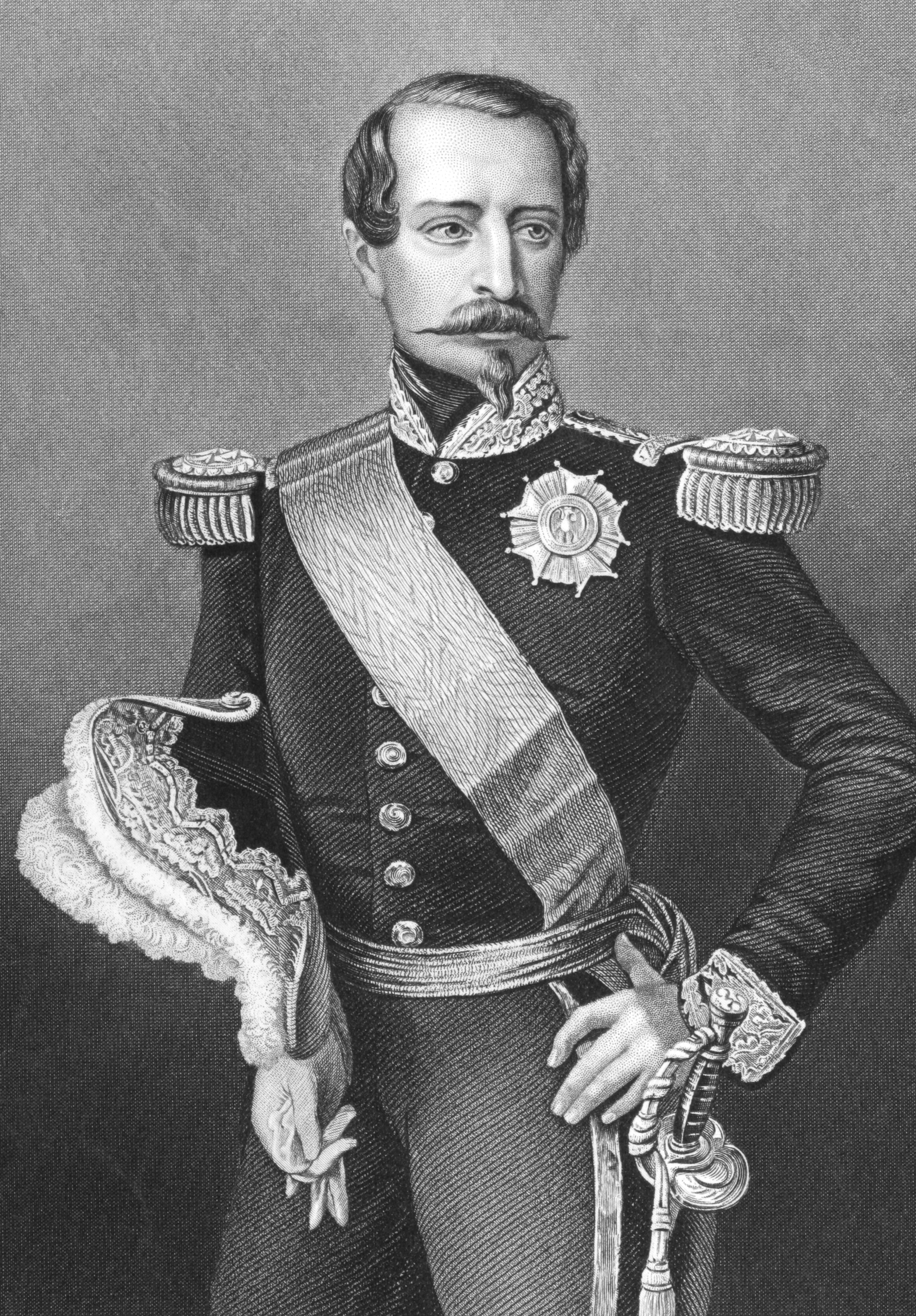Napoleon III (1808-1873) ruled as emperor of France from 1852 to 1870. His public works programs transformed Paris, but failures in foreign policy became his undoing.
Early life.
He was born on April 20, 1808, in Paris, the son of Louis Bonaparte, king of Holland and brother of French Emperor Napoleon I. His full name was Charles Louis Napoleon Bonaparte, but he was usually called Louis Napoleon. A French law of 1816 exiled the Bonapartes from France, and Louis Napoleon spent his youth in Italy, Germany, and Switzerland. He became the head of his family in 1832. He was connected with such revolutionary groups as the Carbonari in Italy. He tried to overthrow the French monarchy of Louis Philippe in 1836 and 1840. He was imprisoned in the French fortress of Ham following the 1840 expedition. He escaped to England in 1846. During these years, he wrote his Napoleonic Ideas (1839), idealizing the career of his famous uncle, and The Extinction of Poverty (1844), proposing that the government act to end poverty and suffering.

Becomes emperor.
When the Revolution of 1848 led to the Second Republic in France, Louis Napoleon returned and was elected to the Assembly. In December, benefiting by the glamour of his name, he was elected president by a large margin. He swore an oath to the republic, but in December 1851, he managed to concentrate all power in his hands. He abolished the republic and proclaimed himself emperor in 1852.
Napoleon’s domestic policies were conflicting. He ruled as a dictator and was surrounded by dishonest adventurers. Although all men could vote, the legislature was powerless and the press could not publish legislative debates. When, after 1860, Napoleon moved in the direction of a liberal empire, it was too late. Liberal opponents continued to urge the overthrow of his government. Yet Napoleon keenly realized the problems of the industrial age. He favored state help for industries, banks, railroads, and the poor. He also backed major construction projects in Paris to modernize the city and to limit uprisings by the French people.
Foreign affairs.
Napoleon tried to settle disputes through international conferences, and he sympathized with claims of nationalism. He helped with independence for Romania, unification for Italy, and, unwittingly, unification for Germany.
Napoleon announced when he became emperor, “The Empire means peace,” yet he led France into a long series of unfortunate adventures in other countries. In 1849, he helped overthrow the Roman Republic and restore the pope. He joined the United Kingdom and the Ottoman Empire in 1854 in the Crimean War against Russia. He secretly promised in 1859 to help the Count di Cavour drive the Austrians from Italy, in return for the promise of Nice and Savoy. But Napoleon withdrew from the war when he saw that Italy, instead of forming a weak confederation, would be united. He supported a scheme making Maximilian, the Archduke of Austria, emperor of Mexico in 1864. Napoleon hoped to increase French prestige, but United States pressure in 1867 forced him to withdraw his troops and leave Maximilian to be shot. Napoleon also supported French expeditions in central Africa and in what is today Vietnam.
His defeat.
Otto von Bismarck, the prime minister of Prussia, wanted to unite Prussia and all the other German states into one country. Napoleon feared that a unified Germany would weaken France’s power in Europe, and he hoped to keep Germany divided. Tensions between France and Prussia grew until they exploded in the Franco-Prussian war of 1870. France, however, was not prepared for war. The Germans easily defeated the French, seized territory in eastern France, and created the German Empire. Napoleon surrendered to the Germans at Sedan, France, on Sept. 2, 1870, with about 83,000 troops. Two days later, supporters of a new French republic overthrew Napoleon’s empire. Napoleon died on Jan. 9, 1873.
